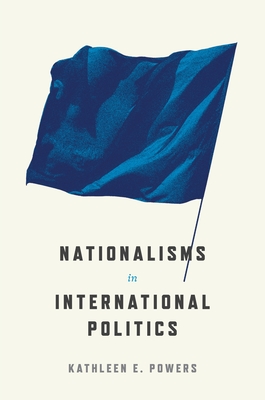Nationalisms in International Politics

Nationalisms in International Politics
How the ideas that animate nationalism influence whether it causes--or calms--conflict
With nationalism on the rise around the world, many worry that nationalistic attitudes could lead to a surge in deadly conflict. To combat this trend, federations like the European Union have tried to build inclusive regional identities to overcome nationalist distrust and inspire international cooperation. Yet not all nationalisms are alike. Nationalisms in International Politics draws on insights from psychology to explore when nationalist commitments promote conflict--and when they foster cooperation. Challenging the received wisdom about nationalism and military aggression, Kathleen Powers differentiates nationalisms built on unity from those built on equality, and explains how each of these norms give rise to distinct foreign policy attitudes. Combining innovative US experiments with fresh analyses of European mass and elite survey data, she argues that unity encourages support for external conflict and undermines regional trust and cooperation, whereas equality mitigates militarism and facilitates support for security cooperation. Nationalisms in International Politics provides a rigorous and compelling look at how different forms of nationalism shape foreign policy attitudes, and raises important questions about whether transnational identities increase support for cooperation or undermine it.PRP: 247.59 Lei
Acesta este Pretul Recomandat de Producator. Pretul de vanzare al produsului este afisat mai jos.
222.83Lei
222.83Lei
247.59 LeiIndisponibil
Descrierea produsului
How the ideas that animate nationalism influence whether it causes--or calms--conflict
With nationalism on the rise around the world, many worry that nationalistic attitudes could lead to a surge in deadly conflict. To combat this trend, federations like the European Union have tried to build inclusive regional identities to overcome nationalist distrust and inspire international cooperation. Yet not all nationalisms are alike. Nationalisms in International Politics draws on insights from psychology to explore when nationalist commitments promote conflict--and when they foster cooperation. Challenging the received wisdom about nationalism and military aggression, Kathleen Powers differentiates nationalisms built on unity from those built on equality, and explains how each of these norms give rise to distinct foreign policy attitudes. Combining innovative US experiments with fresh analyses of European mass and elite survey data, she argues that unity encourages support for external conflict and undermines regional trust and cooperation, whereas equality mitigates militarism and facilitates support for security cooperation. Nationalisms in International Politics provides a rigorous and compelling look at how different forms of nationalism shape foreign policy attitudes, and raises important questions about whether transnational identities increase support for cooperation or undermine it.Detaliile produsului








